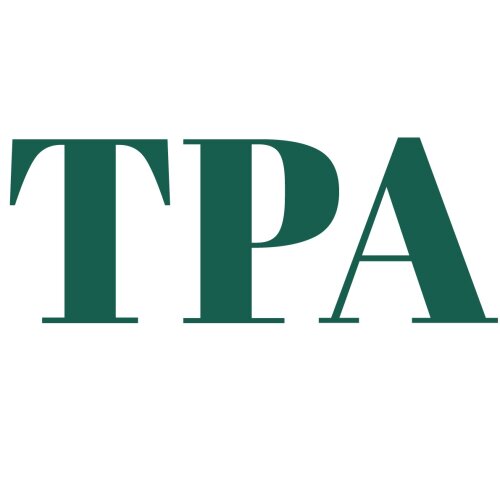Best Nonprofit & Charitable Organizations Lawyers in United Kingdom
Share your needs with us, get contacted by law firms.
Free. Takes 2 min.
Or refine your search by selecting a city:
List of the best lawyers in United Kingdom
About Nonprofit & Charitable Organizations Law in United Kingdom
Nonprofit and charitable organizations play a crucial role in the United Kingdom by addressing social needs, promoting education, and supporting communities. These organizations, also known as charities, must adhere to specific legal frameworks to operate effectively and lawfully. The legal landscape for nonprofit and charitable organizations in the UK is primarily governed by the Charities Act 2011, which oversees the registration, regulation, and monitoring of charities. Charities must be established for charitable purposes, and they operate under the oversight of the Charity Commission for England and Wales, the Office of the Scottish Charity Regulator (OSCR), or the Charity Commission for Northern Ireland depending on their location.
Why You May Need a Lawyer
There are several scenarios where legal expertise is indispensable for nonprofit and charitable organizations:
- Establishing a Charity: Understanding charity formation, registration processes, and compliance with regulatory requirements.
- Governance Issues: Advising on legal responsibilities of trustees, drafting constitutions, and board disputes.
- Tax and Financial Regulations: Ensuring compliance with applicable tax regulations and handling financial audits.
- Employment Law: Addressing employment contracts, volunteer management, and related legal issues.
- Risk Management: Navigating liability issues and implementing insurance and safeguarding measures.
- Conducting Charitable Activities: Understanding contracts, grant agreements, and partnerships.
Local Laws Overview
The following are key aspects of UK law relevant to nonprofit and charitable organizations:
- Charitable Purposes: Organizations must have one or more of the 13 recognized charitable purposes, including relief of poverty, advancement of education, or promotion of human rights.
- Public Benefit Requirement: All charities must demonstrate a tangible public benefit from their activities.
- Registration: Organizations with income over £5,000 must register with the Charity Commission, except for exempt charities.
- Trustees’ Duties: Trustees must act in the charity's best interests, ensure financial accountability, and comply with legal obligations.
- Reporting Requirements: Annual reports and financial statements must be submitted to regulatory bodies.
- Data Protection: Charities must comply with GDPR regulations concerning data handling and storage.
Frequently Asked Questions
What is a charity in the UK?
A charity is an organization established for exclusively charitable purposes in the public benefit, governed by the Charities Act, and overseen by relevant regulatory bodies.
How do I register a charity in the UK?
To register a charity, one must apply to the Charity Commission if in England and Wales, OSCR in Scotland, or the Northern Ireland Charity Commission, ensuring the organization meets all legal requirements.
What are charitable purposes?
Charitable purposes encompass 13 categories such as the advancement of education, health, human rights, or the arts, among others, as defined by the Charities Act 2011.
Do charities need to pay taxes in the UK?
Charities benefit from various tax exemptions, including certain income and capital gains tax reliefs, but must adhere to strict conditions and may still be liable for VAT and employment taxes.
What are the duties of a charity trustee?
Charity trustees are responsible for ensuring the charity is operated properly, legally, and within the charity's best interests, including managing resources responsibly and submitting annual reports.
How can a charity fundraise legally?
Charities must abide by the principles outlined in the Code of Fundraising Practice to ensure ethical and legal fund-raising activities, including transparency and obtaining necessary permissions.
What is public benefit, and why is it important?
The public benefit requirement mandates that a charity's work must provide a demonstrable benefit to the public or a sufficient section of it and is key to maintaining charitable status.
Can a charity employ staff?
Yes, charities can employ staff and must comply with employment laws, including contracts, workplace rights, and safeguarding volunteer involvement.
What financial records must a charity maintain?
Charities are required to maintain accurate accounting records, submit annual reports and accounts to the relevant charity commission, and may need independent examination or audit.
Can a charity merge with another organization?
Yes, charities can merge, but this involves specific legal processes and regulatory requirements to ensure compliance and protect charitable assets.
Additional Resources
- The Charity Commission for England and Wales: Provides guidance and oversight for charities operating in England and Wales.
- Office of the Scottish Charity Regulator (OSCR): Manages charity registrations and regulations in Scotland.
- The Charity Commission for Northern Ireland: Offers regulatory advice and resources for charities in Northern Ireland.
- National Council for Voluntary Organisations (NCVO): Supports voluntary organizations with resources and advocacy.
- The Charity Tax Group: Provides advice and advocacy on tax issues affecting charitable organizations.
- HM Revenue & Customs (HMRC): Offers resources on tax reliefs and obligations for charities.
Next Steps
If you are seeking legal assistance with nonprofit and charitable organizations in the UK, consider the following steps:
- Define your legal needs clearly, whether setting up a charity, handling a dispute, or ensuring compliance.
- Contact a solicitor or legal advisor specializing in nonprofit law to discuss your situation and seek guidance.
- Consult the relevant charity commission for additional support and information tailored to your jurisdiction.
- Utilize available resources, such as informational guides and webinars, to enhance your understanding of the legal landscape.
- Ensure ongoing compliance with legal and regulatory requirements by staying informed about changes in charity law.
Lawzana helps you find the best lawyers and law firms in United Kingdom through a curated and pre-screened list of qualified legal professionals. Our platform offers rankings and detailed profiles of attorneys and law firms, allowing you to compare based on practice areas, including Nonprofit & Charitable Organizations, experience, and client feedback.
Each profile includes a description of the firm's areas of practice, client reviews, team members and partners, year of establishment, spoken languages, office locations, contact information, social media presence, and any published articles or resources. Most firms on our platform speak English and are experienced in both local and international legal matters.
Get a quote from top-rated law firms in United Kingdom — quickly, securely, and without unnecessary hassle.
Disclaimer:
The information provided on this page is for general informational purposes only and does not constitute legal advice. While we strive to ensure the accuracy and relevance of the content, legal information may change over time, and interpretations of the law can vary. You should always consult with a qualified legal professional for advice specific to your situation.
We disclaim all liability for actions taken or not taken based on the content of this page. If you believe any information is incorrect or outdated, please contact us, and we will review and update it where appropriate.
Browse nonprofit & charitable organizations law firms by city in United Kingdom
Refine your search by selecting a city.

















